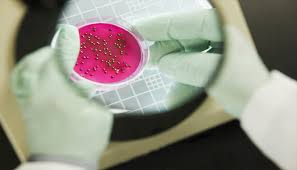Scientists identify fungus that eats plastic
Scientists from Chinese Academy of Sciences (CAS) have identified a soil fungus Aspergillus tubingensis that uses enzymes to rapidly break down plastic materials. The plastic-eating fungus was found Islamabad, Pakistan.
The new discovery in an advance can help to deal with plastic waste problem that threatens our environment in safer and more effective way
Key facts
- Scientists have found that Aspergillus tubingensis fungus which ordinarily lives in the soil can also grows on the surface of plastics.
- In order to grow on plastics, it secretes enzymes on the surface of the plastic which break the chemical bonds between the plastic molecules, or polymers.
- This fungus also uses the physical strength of its mycelia (the network of root—like filaments) to break apart the polymers.
Significance of discovery
Plastic waste materials can persist in the environment over long periods of time as they do not break down in the same way as other organic materials. The conventional plastic waste disposal through burying, recycling, incineration or other methods are unsustainable, costly and result in toxic by-products, which are hazardous to human health. This discovery can offer cheap sustainable solution to degrade plastic and its toxic by-products without having any negative impact on environment and human health.
Month: Current Affairs - April, 2017


